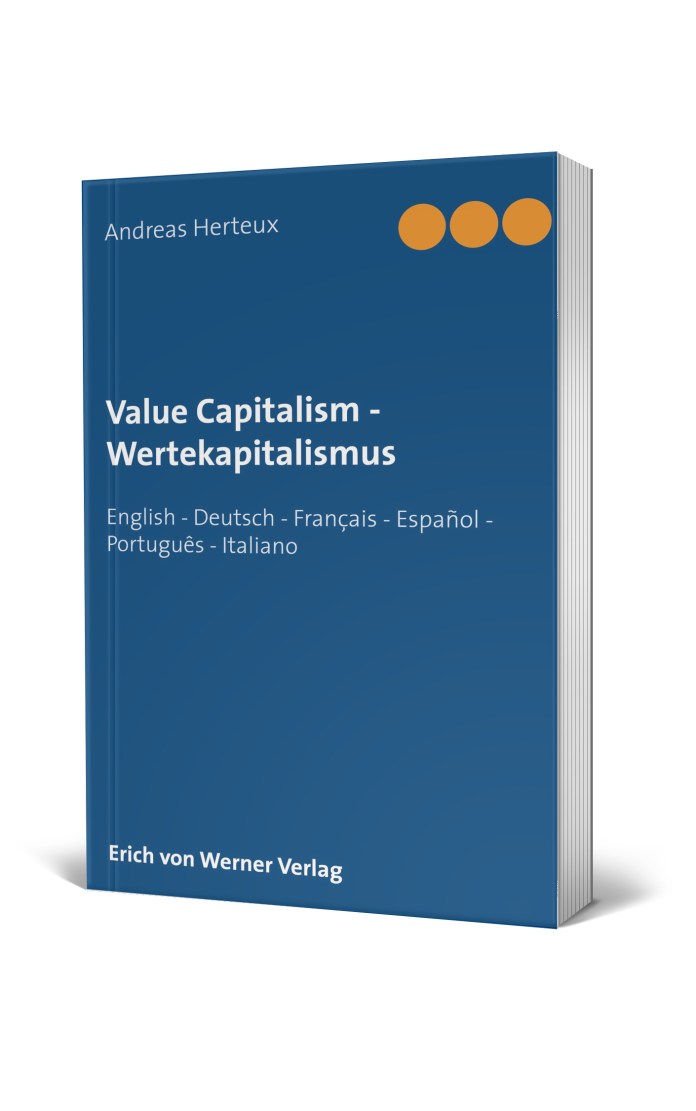The present is characterized by many changes and uncertainties. Social division, geopolitical competition, economic and ecological development, Covid-19 – the future is full of challenges. But how can Africa master them? Andreas Herteux, philosopher and director of the Erich von Werner Society, has an idea of how it could succeed.
Mr. Herteux, you have developed a concept that could create a better world. What exactly is value capitalism?
Value capitalism a further development of the existing economic system in which values become a factor of production. That is, they simply become fundamental to maximizing profits.
Can you explain this in more detail?
By values we mean, for example, standards such as working conditions, co-determination rights or environmental protection. For companies, these tend to be more of a hindrance when it comes to maximizing profits. This is precisely where value capitalism comes in. Values have to be established as a production factor, without which profit maximization becomes much more difficult. Put simply, value capitalism relies on and manipulates the greed of free enterprise. It creates an economy in which success is maximized when defined standards are met. It is a win-win concept.
Who establishes such a system? The state?
No. It is only the market that works. Value capitalism is, to use a graphic image, the remedy that enters the sick body and reprograms it. It restrains capitalism and steers it in the right direction. However, from the inside.
This sounds very good, but how is value capitalism to be established?
Practically speaking, technology is the key to the future. Therefore, it makes sense for democratic-free nations to establish a common – democratically-legitimized and controlled – value fund, a value guardian, that invests specifically in it and builds up corresponding market power. What corporations like Google, Tencent or Alibaba have created in a few years without initial capital, a fund that enjoys such support – think here, for example, of a small percentage of the gross national product – can certainly do much faster. From this development, technological standards emerge that must be licensed by those who wish to use them. Through this licensing, values can now become a production factor by making compliance with them part of the contract. No company is forced to do this. It is a free entrepreneurial decision, but the desire to maximize profits will ultimately lead to such clauses being accepted. The profits generated by the value guardians themselves, on the other hand, would be invested on the one hand and distributed to the donor states on the other. This would make it possible, for example, to finance social systems or infrastructure.
Sounds like a fantastic solution to make the weakening colonial powers great again, but how does Africa benefit from this? Many African countries have big problems and would be excluded from the value guardian, wouldn’t they?
Participation in the guardian of values is intended for free democratic states. So standards apply. These are an essential part of the concept. However, this does not mean that a state cannot also be led there. Silent participations with corresponding conditions are quite conceivable. Value capitalism is a pragmatic concept, not an ideological one. Africa would then not only participate from – perhaps earmarked – revenues, but would also become far more interesting as a workbench of the world than it has been up to now.
So a new colonization?
No, a final liberation and finally an acting on absolute eye level. If you will, also a redemption.
China is also investing massively in Africa.
Yes, that is correct and perhaps in a few years it will turn out that the formula “mineral resources against infrastructure and cheap products” was altogether more successful than the development aid of the western world. Here, the West should critically question itself and also clearly name its own mistakes, of which there were many. Only, value capitalism has nothing to do with this old thinking of development aid. On the one hand, you would have the self-serving strategy of an authoritarian state and, on the other, a concept that strives for prosperity and freedom for all.
But as long as this guardian of values does not exist, is the Chinese approach better than Western development aid?
That is a difficult question, because we cannot yet assess the long-term effects of this policy. In the short term, it looks like this. But China’s cheap products could still prove counterproductive for the domestic economy unless at least some production is moved to Africa. Just because China wants to do that at all? Or does it just want to create dependencies? The same applies to infrastructure projects or loans, which will probably act like chains at some point. Not visible at first, but all the tighter later. In principle, however, the desire for rapid growth and modernization is understandable. But value capitalism also offers all of this, only without shackles and, above all, at eye level.
Thank you very much for the interview
Andreas Herteux is an economist, publicist, philosopher, and founder and director of the Erich von Werner Society, an independent institution for contemporary issues.












